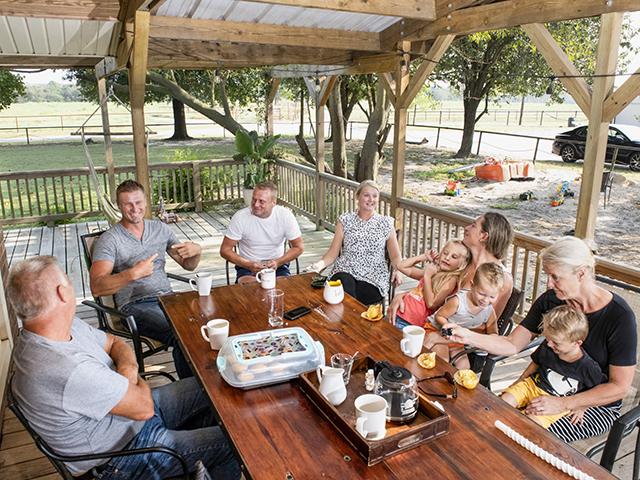Family Business Matters
Why It's Hard To Be a Family Business
When meeting with people who don't know about agriculture, I am often asked whether I work with "corporate" farms. I respond by explaining that almost all operating farms and ranches in the United States are family businesses -- 96% according to the 2017 census of agriculture. A family farm or ranch might use the legal structure of a corporation or even several related legal entities. But, the reality is that behind most farms, large and small, stands a family that works the land in order to make a living.
The idea of a family farm or ranch sounds idyllic. Being in business with family can have a certain allure, an attraction based on shared values and high trust. Infused with purpose and meaning, family businesses appeal to both the need to belong and to work for something beyond ourselves -- the customer, a cause such as hunger, the community and even future generations of family members.
FAMILY VS. NONFAMILY
When considering family businesses versus nonfamily enterprises, we have the impression that family businesses care more for their employees and customers, creating a more personal connection to the organization. Family businesses can take a longer view than public companies that have to manage to quarterly earnings. Family businesses can be more flexible with staff than corporate bureaucracies. Family businesses can respond quickly to changes in the economy or new, emerging opportunities.
Family businesses give us a "family" with whom we might identify, a person or group with a name and a story, maybe a story not all that different from ours. And, that feels good to us; it holds the promise of something more than a simple economic transaction. Doing business with, or working for, a family feels as if we are establishing or furthering a relationship.
P[L1] D[0x0] M[300x250] OOP[F] ADUNIT[] T[]
But, being in business together -- mixing work and finances with family relationships -- can be full of peril because of the different nature of family and business systems. "The family" is inclusive. Everyone has value, and most would even argue that people in the family have equal value. The family is intended to be a place of stability and refuge, of love and forgiveness. Expectations of one another are made known early in life and are relatively static. Emotions are important. Performance involves treating others well, demonstrating love and being "there" for one another.
The business, however, is expected to be competitive. The focus is external, on products and services to others, not on serving internal family members. Some people are financially more valuable to the business than others. Certain roles require skills family members may not possess. Rational, not emotional, decision-making is the norm.
Running a business requires innovation, change and, at times, disruption. Markets evolve, and so do the roles of people in the business, requiring modification of expectations and, thus, difficult discussions about behavioral changes. Performance involves generating revenue, managing expenses and supervising others -- tasks with limited (or no) correlation to family relationships.
PROMISE AND PERIL
The point is that a family business has elements beckoning us to leverage our family's familiarity and comfort with one another, while containing the seeds of potential conflict in a business' competitive nature and meritocracy. The family part of the enterprise promises support and continuity, but the business side of the enterprise lives in the reality of competition and change.
When the promise and the peril combine, family discord emerges. The clash of operating mindsets between the family and the business creates division. Different goals produce disagreement.
Navigating these rough seas of family and business takes constant communication and the ability to resolve conflict. That's why family discussions, including topics such as succession, estate and strategic planning, are so critical to future success. Articulating those plans and goals forces the family to deal with the realities of the business, and that will make your family and your business better.
**
-- Write Lance Woodbury at Family Business Matters, 2204 Lakeshore Dr., Suite 415, Birmingham, AL 35209, or email lance.woodbury@kcoe.com
[PF_0822]
(c) Copyright 2022 DTN, LLC. All rights reserved.




